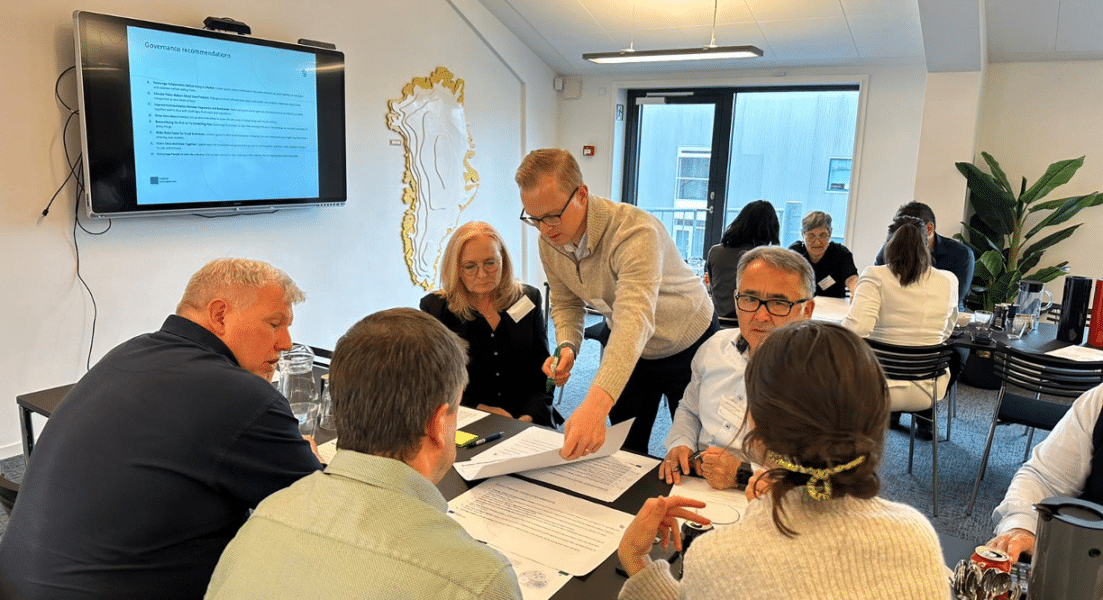Advancing Blue Bioeconomy Potential: BlueRev’s Governance Study Identifies Key Pathways
The BlueRev project has completed a study examining how governance structures influence innovation in the emerging blue bioeconomy sector. Our research, conducted across the project’s three pilot regions has uncovered valuable insights into the challenges facing the governance of innovations systems in the blue bioeconomy and identified practical solutions to overcome them.
Through stakeholder interviews and workshops in the pilot regions, we have completed a systematic mapping of the governance landscape. We applied our Governance of Innovation Systems (GOIS) framework to systematically evaluate how governance systems support the valorization of fishery side-streams and microalgae development. Despite their geographical and cultural differences, all three regions face similar governance challenges. While there’s progress in market formation for blue bioeconomy products, we found significant barriers in legitimacy creation and knowledge development. The complex regulatory environment and fragmented responsibilities across government agencies create difficulties for small and medium enterprises trying to innovate in this space. Resource constraints appear in different forms across regions – Sicily struggles with infrastructure limitations, while Denmark and Estonia face workforce shortages. These challenges highlight the need for tailored yet coordinated policy approaches.
Based on our analysis and input from regional workshops, the BlueRev project recommends three key policy interventions. These recommendations are grounded in the experiences shared by stakeholders during our regional workshops.
Simplify regulatory processes through mechanisms like regulatory sandboxes, where innovative businesses can test new processes with temporary exemptions from standard regulations. Administrative one-stop shops could also help businesses navigate complex multi-agency requirements more efficiently.
Develop innovative financing mechanisms like blue bonds specifically targeted at sustainable ocean-related projects. Dedicated business accelerators could provide the structured support, mentorship, and funding needed to stimulate entrepreneurship in coastal communities.
Enhance collaborative frameworks to bridge knowledge gaps and create legitimacy for new approaches. Regional networks can facilitate knowledge sharing across stakeholders, while public-private partnerships can combine public resources with private sector innovation capabilities.
By implementing these governance improvements, we can help coastal communities develop thriving blue bioeconomy initiatives that balance economic opportunity with ecological responsibility.
The full results are described in the deliverables D4.3 which will soon be available on the BlueRev website!







